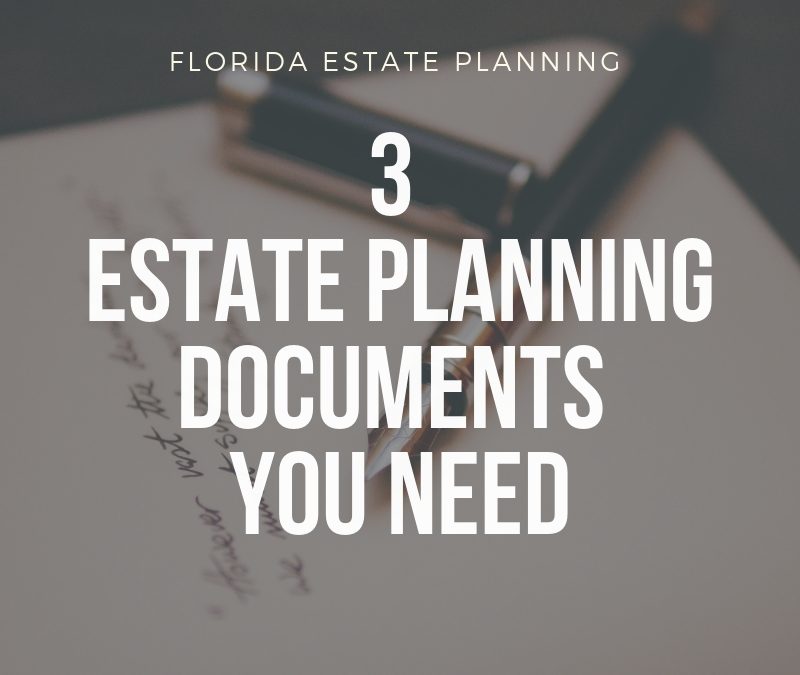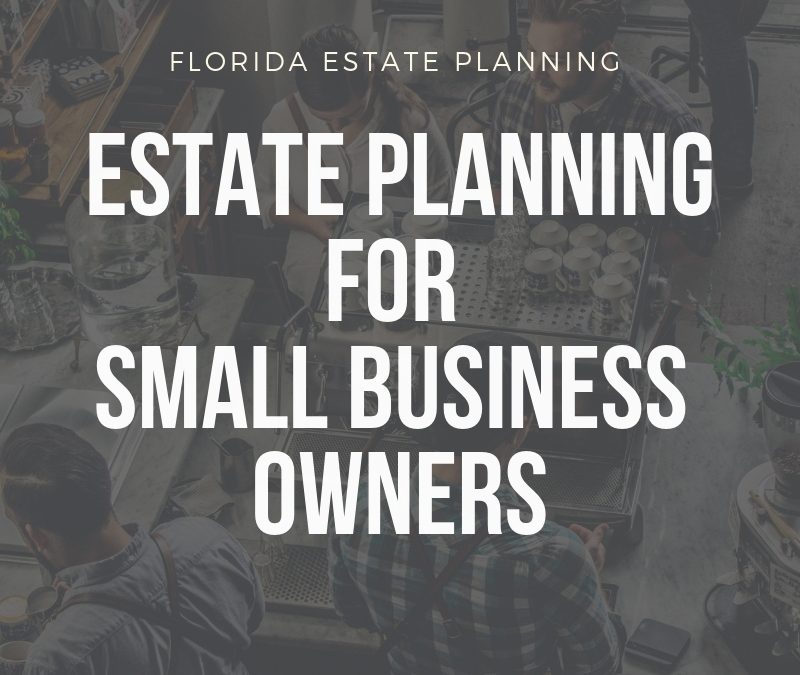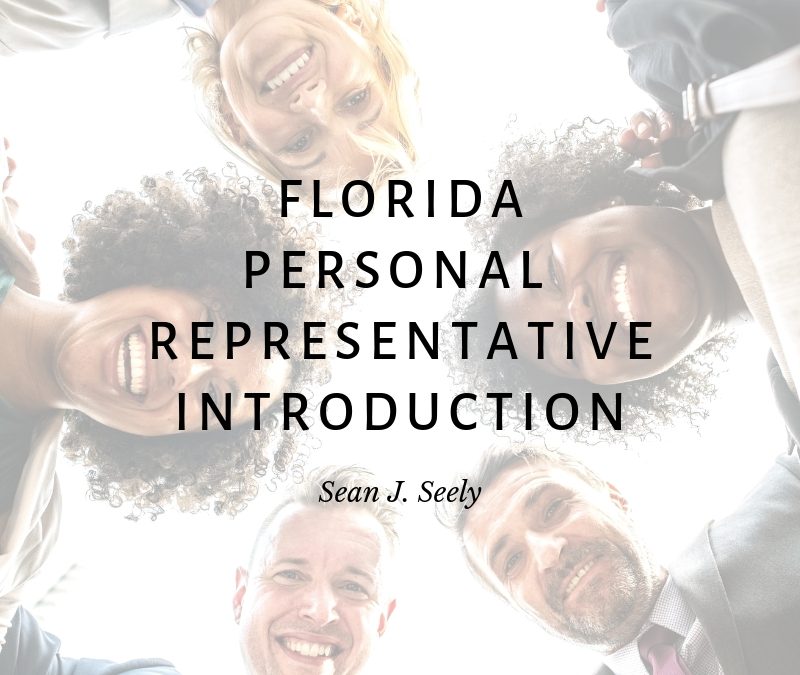When we die, we inevitably leave behind belongings, debts, assets, businesses, and many, many other things that will need to be tended to. Who will take care of these tasks? In Florida, the person (or people) who will wrap up all the loose ends is called a personal representative.
How Do You Become a
Florida Personal Representative?
If someone dies with a Will, the Will often nominates someone to be the estate’s personal representative. A court will always appoint the Will’s nominee so long as they meet the statutory requirements for being a personal representative and are able to carry out the duties. If someone dies without a Will, or intestate, the court will appoint a personal representative – usually a close relative or friend, but if neither of those is available, the court can appoint certain Florida-based trust or financial entities to act as the personal representative.
Once the court appoints the personal representative, he or she will need to obtain certified copies of Letters of Administration, which will be the first of many steps in being able to fulfill the duties to the estate.
Who Can Be a
Florida Personal Representative?
Florida law clearly lays out the requirements to be a personal representative. A personal representative must be over 18 years of age, a Florida resident at the time of the decedent’s passing, not a felon, and willing and able to perform the necessary duties. There are exceptions to the Florida residency requirements, mostly for spouses, children, and close relatives, and there may be some exceptions to the “no felons” rule. If there are any questions about a nominee’s capacity to serve as the personal representative, these should be cleared up by the court overseeing the estate.
What Are a
Florida Personal Representative’s Duties?
Once appointed, the personal representative becomes responsible for all decisions related to the decedent’s estate. If the personal representative is not an attorney, he or she must hire a Florida attorney to represent them individually as the personal representative. It’s important to note that the attorney for the personal representative is NOT the attorney for the estate or the beneficiaries – the attorney serves the Representative alone. If there are two or more personal representatives, it is advisable that they be represented by the same attorney. Under Florida law, the attorney for the personal representative is to be paid “reasonable compensation” out of the estate’s funds.
The personal representative acts as a fiduciary to the estate – they must act in good faith and loyalty on behalf of the estate for the benefit of the beneficiaries and creditors of the estate.
Being a personal representative is no easy task. Responsibilities include gathering the estate’s assets, collecting debts, preserving and maintaining assets, notifying creditors, paying creditors, making distributions to beneficiaries, and much, much more. One of the first tasks a personal representative will perform is to file a verified inventory of assets within the first 60 days of being appointed. The inventory of assets contains a description of and an estimate of the fair market value of the estate’s assets at the time of decedent’s passing.
Aside from assessing and disclosing assets, the personal representative must protect and preserve all assets pending distribution to the beneficiaries. They must keep records of spending on behalf of the estate, and must inform creditors in a timely manner of the administration of the estate. And, of course, the government will want to see it’s fair share – the personal representative is responsible for filing the final paperwork with the IRS to wrap up the decedent’s tax matters.
Some Florida estates will be straightforward: limited real property, some assets and cash, and clear wishes for distribution left by the decedent. Others may be far more complex – for example, was the decedent involved in any lawsuits? Did he or she have a business? Are there significant real estate holdings? Out of state assets? Out of country assets?? Things can get complicated very quickly, which is why it is important for the personal representative to hire a competent, experienced probate attorney.
Some Practical First Steps A
Florida Personal Representative Can Take
Aside from hiring an attorney, the personal representative can take certain steps to ascertain exactly what needs to be wrapped up in the estate. Below are a few suggestions of where to start. This is definitely not an exhaustive list, so if you are acting as a personal representative be sure to consult with your attorney regarding other matters to address.
- Review decedent’s checking and savings account records. They will provide clues as to potential creditor identities, assets, and liabilities.
- Figure out if the decedent had a safe deposit box. Check with the bank to see what is needed for access, as it may have specific requirements.
- If there are mortgages on a property, keep paying them and make sure they’re current. Work with your attorney and mortgage holder to find out next steps.
- Make sure that any titled property, such as cars, is held in a manner that makes them easily transferred to beneficiaries.
- Hire experts, such as appraisers, contractors, and accountants, if needed. Advise the court if there will be any unusual costs associated with experts.
- Check the decedent’s mail, and forward it to a convenient mailbox. Mail will also provide good clues as to creditors, assets, and liabilities.
- Find out if the decedent was receiving any benefits such as social security, veteran benefits, a pension or other payments. These may need to be refunded if they continued after death.
- Check the decedent’s records, both paper and digital. Passwords may pose a challenge, but can often be obtained by showing proper documentation.
- If the decedent had a pet or pets, ownership rights and care will need to be addressed.
As mentioned, these considerations only scratch the surface of what a Florida personal representative will need to take on. The Florida Bar has a very helpful consumer pamphlet on probate on its website that can address some initial questions about the process. You may also always contact the experienced probate and trust administration attorneys here at Lynchard & Seely. We are sensitive to both the emotional and practical challenges that a personal representative may be going through, and we welcome you to contact us for a free consultation.
Want Help With Your Estate Plan?
Click Below to Schedule a FREE Initial Consultation!
Lynchard & Seely – COVID-19 Update
We want to update you on the steps we are taking to ensure we can continue to meet your legal needs in a secure and reliable manner. This year marks our firm’s 20th year in Navarre, and our team remains fully operational and here to support you and our community...

3 Florida Estate Planning Documents You Need Right Now
Three, fairly simple Florida estate planning documents is all you need. While, other things can help more, these will get you by in a pinch.

Estate Planning For Small Business Owners
Estate Planning for Small Business Owners – You have to think about more when estate planning if you have a business.
Want Help With Your Estate Plan?
Click Below to Schedule a FREE Initial Consultation!

